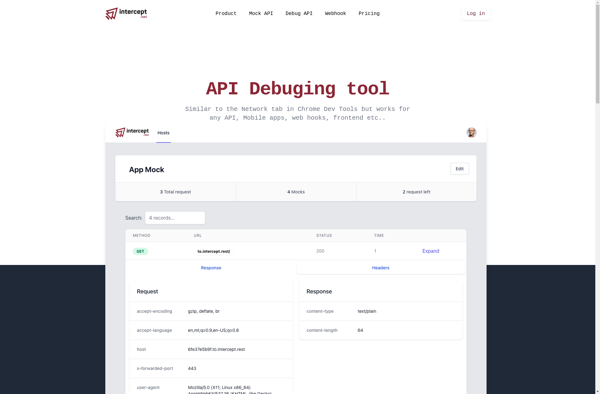Description: intercept.rest is an open-source REST API testing tool that allows users to easily test and debug APIs. It provides an intuitive interface to send requests and inspect responses, offers code generation to convert requests to code, has built-in support for variables, environments, and chaining requests.
Type: Open Source Test Automation Framework
Founded: 2011
Primary Use: Mobile app testing automation
Supported Platforms: iOS, Android, Windows
Description: Beeceptor is a free online API mocking tool that allows you to create simulated APIs to test applications and prototypes without connecting to a real backend. It provides a simple interface to define API endpoints and responses.
Type: Cloud-based Test Automation Platform
Founded: 2015
Primary Use: Web, mobile, and API testing
Supported Platforms: Web, iOS, Android, API

